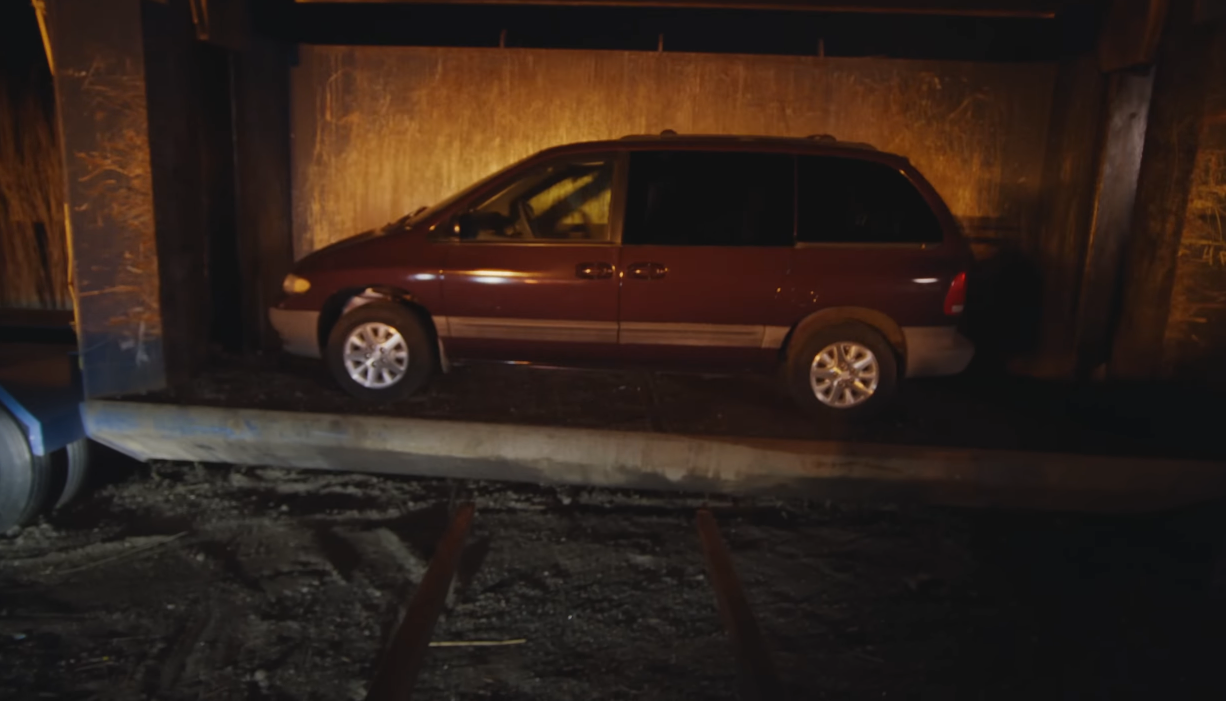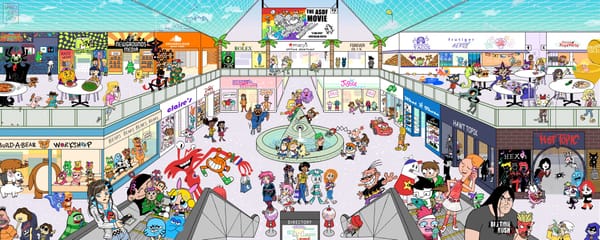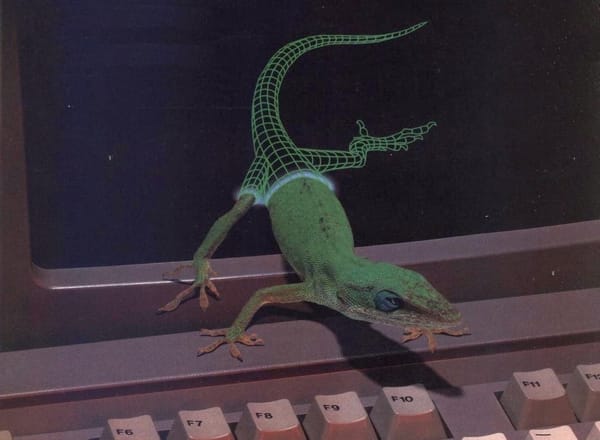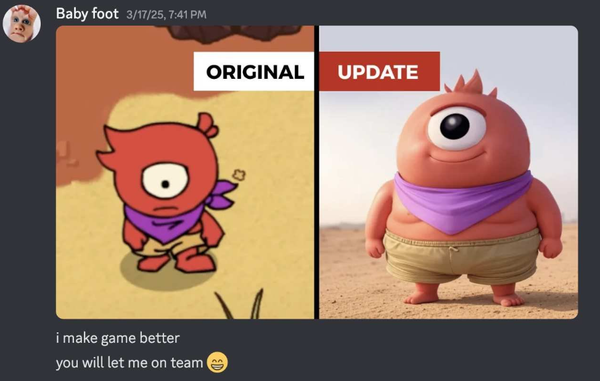A user’s guide to the Kendrick Lamar/Drake beef

The beef between Kendrick Lamar and Drake has dominated pop culture for the past 6 weeks or so, and one consistent complaint I’ve heard from people, online and IRL, is that they don’t know what’s going on. Either a) they don’t know the backstory, b) they can’t follow the string of allegations in the individual tracks, or c) they can’t keep up with the news, since it seems to move very quickly. This is particularly true of the past week, in which both rappers have released a flurry of tracks packed with deep-cut insults and incendiary allegations. In the interest of public service, I want to explain what’s going on here in the simplest terms possible.
These dudes hate each other! I mean they just really, really do not like each other, as humans or (more importantly) as artists. The exact origins of this beef aren’t exactly known — I suspect it’s just the natural friction that arises when two people are at the top of a given field in which some amount of dominance is mandated at an aesthetic level. Rap battles and assertions of supremacy are woven into the form; at any given point over the past four decades, there was a hegemonic Greatest Rapper Alive, and anyone in the running for said spot was typically beefing, in some capacity, with the other claimants.
And so the true origins of the Drake/Kendrick beef aren’t totally clear, nor, I think, will they ever be. It’s aesthetic, philosophical, inevitable. Kendrick is a Pulitzer-winning chronicler of the human experience, a writer who wrenches personal traumas into galactic expressions of feeling. Drake reinvented R&B and then rode every emergent stylistic wave in global music for a decade-plus, dropping charismatic cosigns and year-swallowing singles at a relentless clip. At one point, this included cosigning Kendrick himself. Both guested on the other’s best album, first Kendrick hopping on a brief interlude on 2011’s Take Care and then Drake guesting prominently on Kendrick’s 2012 masterpiece Good Kid, M.A.A.D. City. At the time, Kendrick was staking an initial claim as the greatest rapper alive, and Drake was concurrently moving out from his reputation as a moody R&B sadboy and into a run as a great rapper, so this was a mutually beneficial pairing, if one that unwittingly set both on a collision course.
Over the next decade, both went on to release a bunch of records that contained tons of nebulous disses that people are now assuming were about each other. Regardless, things got hot very quickly:
- October of last year - Drake and J. Cole released a track called “First-Person Shooter,” in which Cole claimed that he, Drake, and Kendrick were “the big three.” Most people rolled their eyes at Cole and then moved on. [link]
- March 26 - Kendrick’s guest verse on Future’s track “Like That” explicitly rejected the “big three” claim, thumping, “It’s just big me.” [link]
- April 5 - J. Cole released a Kendrick diss called “7 Minute Drill” that was so soft and universally reviled that Cole subsequently had it scrubbed from all streaming services. His current whereabouts are unknown. [link]
- April 13 - Drake released his first full-length response, “Push Ups,” followed almost immediately by “Taylor Made Freestyle,” a toss-off which taunted Kendrick further with AI voice reproductions of Tupac and Snoop. [link]
- April 30 - Kendrick released “Euphoria,” his first full-on diss track to Drake. [link]
- May 3 - Kendrick released another diss, called “6:16 in LA.” [link]
- Minutes later on May 3- Drake immediately released the 7-minute “Family Matters.” [link]
- More minutes later on May 3 - Kendrick released another diss, “Meet The Grahams.” [link]
- May 4 - Kendrick released his fourth diss track, “Not Like Us.” [link]
- May 5 - Drake released yet another diss track, “The Heart Part 6.” [link]
So, busy week. If you're wondering why I haven't itemized the various allegations and insults in each one, it’s because doing so would take longer than you just listening to the tracks themselves. Open them up on Genius and read the citations; they’re crowd-sourced fever dreams often emerging from the internet’s collective imagination, but then, these are rap disses based on hearsay and spycraft, so that’s all part of the fun (or not). Part of the way rap beef works these days is that the involved rappers attempt to dig up dirt on the other, looking for a knockout blow like Pusha T’s infamous “you are hiding a child” line. Kendrick and Drake both structured recent tracks toward that exact end — Drake claiming Kendrick hired a crisis management team to cover up a domestic violence incident, and Kendrick claiming Drake is hiding the existence of another child — but Drake has already countered that claim by saying he intentionally fed Kendrick the “second illegitimate child” story. Wheels within wheels …. and, and …
I can already feel myself getting sucked into the tit-for-tat slap-fight going on here. And look: Like everyone else on the internet, I am eating this stuff up. The second one of these dudes drops a track I sit in the car and listen to it and shake my head in gee-shucks awe at the low blows and wordplay and so on. Obviously I hope the worst allegations aren’t true; I like both of these guys' music. But part of what works in this beef, for me at least, is that I don’t think either rapper really cares about the deep personal-life stuff. Low blows delivered, this returns to an aesthetic confrontation. Kendrick’s best (and most recent) track here is “Not Like Us,” a snappy DJ Mustard throwback that even Drake conceded goes hard; in its back half, Lamar picks Drake apart not for the way he lives his life but instead for the way he makes his music, coopting a long string of Atlanta rappers toward various legitimacy-boosting ends. While “6:16 in LA” and “Meet The Grahams” are uniquely Kendrickian diss tracks, treating Drake’s entire existence as a baleful literary tragedy, I think he actually hates Drake for a much simpler reason. He thinks Drake is a douchebag.
And here’s the thing: he’s right. Both artists are right about the other, in fact. Drake is a douchebag — it’s the surface text of his career. Early records were sonically inventive portals into the mind of a needy lothario; recent LPs like Her Loss and For All The Dogs made more explicit heel turns, cackling at his own metastasizing depravity. The claim that no one in Drake’s inner circle likes him and he is alone at the top — which was the dagger of Kendrick’s “Euphoria” diss — is the exact subject matter of, and I am not joking here, most Drake songs. This cannot be news to Drake.
And as for Lamar — Drake’s also not wrong that his music can be fussy and overwrought and that the artist is not as pious as his reputation would indicate. And I know this, too, because it is the surface text of Lamar’s entire discography. It is the explicit subject matter of Good Kid, M.a.a.D. City and To Pimp A Butterfly and Damn. and Mr. Morale And The Big Steppers: all four records about an artist at war with his own ambition and his own human flaws. He desperately believes in the capacity of his art to transcend and maybe even redeem his own moral failings.
Both of these rappers, in other words, just hate the other’s records. They hate the person presented by the other’s art. They hate that other people like that art, see it as contiguous, contemporaneous, even collaborative. This isn't exactly a good look for either of them, but it weirdly works to clarify the virtues of each. I am not the first person to note that, at the very least, this beef has got Kendrick in the booth again, firing off tracks at a clip we haven’t seen since the Obama administration. And, while Drake has never lacked for hip-shot singles like this, he seems animated, too, more comfortable in the heel persona he's adopted in the post-Pusha years. He might lose in the public’s eyes just because he’s not being forced to flex out of his comfort zone as much as Kendrick is. If we have learned anything from Kendrick’s post-Mr. Morale era, it’s that people want to hear him have some fun — which is decidedly true of all the manic, petty, scornful shit he’s putting on wax right now.
If I had to guess what will happen next here, it’s that neither will back down and both will say they’re done with the other, at least for awhile. Nobody has receipts for the worst stuff they’re claiming, and this has all gotta be costing as much money as it’s making. Both rappers have already started alluding to beef burnout. But I’m also hesitant to make any ironclad claim here. Woe unto the rap writer who grafts a coherent narrative onto this beef only to be rendered outdated instantly. And anyway, like Lamar, my therapist has urged me to live in the moment, to control the things that are within my own power and accept the things outside of it. In other words, I have no idea where this is headed. There is an awful lot of fan fiction going around, conjuring images of the artists sweating in their mansions, shook by the latest missive, legacies tarnished. The truth is this: We don’t really know the truth about any of this. For all we know, it’s all a carefully orchestrated studio operation planned to spin up streaming figures in the wake of a sluggish year for hip-hop. Would that be deflating?
Not, at the very least, for me. I like both of these dudes a lot, even if they haven’t been in my personal big three in years (ask me some other time). I’ve never really cared about accusations that Drake uses ghostwriters. There are fairly credible narratives that claim Ghostface didn’t write Supreme Clientele, but that doesn’t make that not my favorite record ever. The music is what it is. That works for me on an absolute, conceptual level. It’s also the crime for which each artist is putting the other on trial. The music is what it is — and they fucking hate it.
First time reading? Sign up here.
Love EX? Hate EX? Want to work with us? We’re listening: team@exresearch.co.






